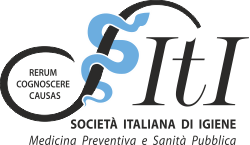The pneumococcal vaccine can help prevent Pneumococcal infection.
Although there are more than 90 types of pneumococcus, the vaccine protects against those that most frequently cause disease. There are two types of vaccine: the 23-valent polysaccharide, which can only be used in children over two years of age and in adults, and the 13-valent conjugate (PVC13) which protects against the 13 strains responsible for most of the serious infections in children . PVC13 replaces the previous conjugate vaccine (PVC7), which protected against 7 types of pneumococcus and had been used since 2002.
Thanks to vaccination, in this period severe pneumococcal disease has decreased by almost 80% in children under 5 years of age. PVC13 can also help prevent cases of pneumonia and otitis caused by Pneumococcus. Obviously pneumonia and otitis can have many causes, therefore the vaccine will only protect against those caused by the strains contained within the vaccine.
PVC13 is an inactivated (ie obtained starting from fragments of the bacterium) and conjugate (ie bound to a protein that increases its effectiveness) vaccine.
It is administered via injection and is indicated for infants and children up to 5 years, as well as for older children and adults who present certain risk conditions.
PVC13 can also be given together with other vaccinations.
When to vaccinate
PVC13 is recommended:
- for all newborns in 3 doses at the 3rd, 5th and 11th-13th month of life;
- children aged between 12 and 23 months: two doses at least 2 months apart;
- children aged between 2 and 5 years: a single dose.
Children who have begun immunisation with PVC7 can complete it with PVC13.
Furthermore, to increase protection, it is advisable to administer a dose of PVC13 to all children, up to 5 years of age, who have completed a cycle with PVC7.
Finally, the vaccine is strongly recommended for children and adults who are considered particularly at risk (eg those with chronic heart disease, chronic lung disease, diabetes, kidney failure, asplenia, blood disorders, immunodeficiency, neoplasms, transplantation, HIV, deafness cochlear implants, etc.) as these condidtions increase the likelihood of serious complications. Even in these cases one dose is sufficient. In general, it is recommended to always inform your doctor of any serious allergies.
Who should not be vaccinated
Those who have had a serious allergic reaction to a previous dose of the vaccine, to PVC7 or to any vaccine containing diphtheria anatoxin (eg, Diphtheria-Tetanus-acellular pertussis vaccine) should not be vaccinated. Also anyone who has a serious allergy to any component of the PVC13 or PVC7 vaccine should not be vaccinated.
When to postpone vaccination
Children with mild illnesses (such as a cold) can generally be safely vaccinated. If, on the other hand, they have moderate or severe illnesses, it is advisable to delay vaccination until they have recovered.
Vaccination risks
The pneumococcal vaccine is very safe and effective in preventing Pneumococcal infection. However, like any other drug, vaccines can have serious side effects, such as an allergic reaction. However, the probability that any vaccine can cause serious harm is very low.
In the studies carried out, most of the adverse reactions to the vaccine are mild and vary according to the dose and age.
In general:
- after vaccination about half of all children experience drowsiness, temporary loss of appetite, redness and swelling at the injection site;
- approximately 1 in 3 children has swelling at the injection site;
- 1 in 3 children has moderate fever and 1 in 20 high fever (over 39 ° C)
- about 8 out of 10 children show irritability.
A severe allergic reaction from a vaccine is very rare and in any case usually occurs within a few minutes (or a few hours) of vaccination.



